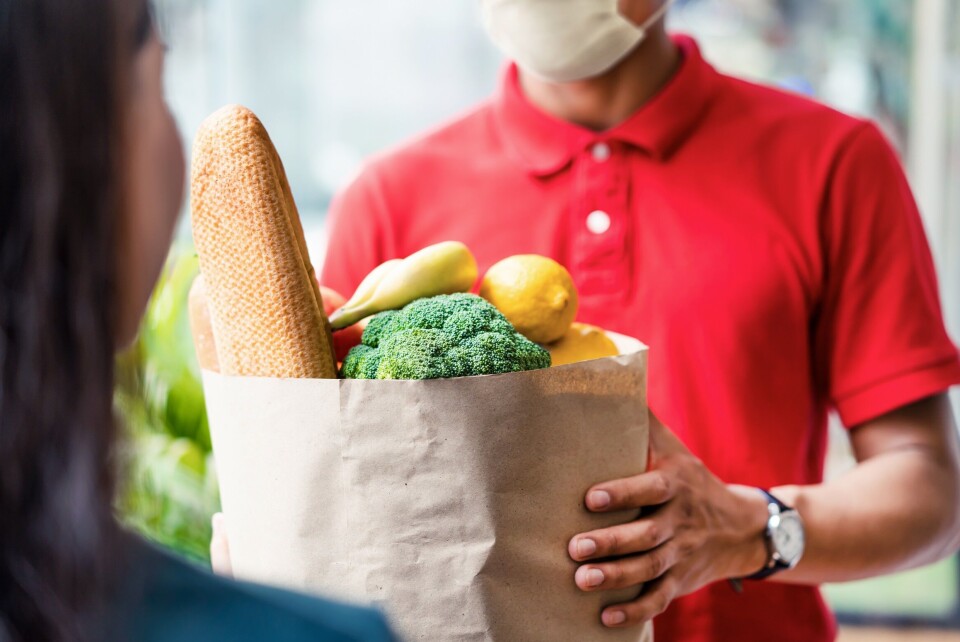-
Life expectancy in France continues to outperform European averages says latest official data
France, Spain, and Luxembourg are among the EU countries where people live the longest
-
French union calls for anti-budget protests from November 6
First action would be in support of retirees
-
French airports among hardest hit by Ryanair winter cuts
It comes as Poland, Ireland, and Malta see increases over the season
French cities catch on to 15-minute order-to-door grocery apps
Rapid services operating in Paris, Toulouse, Bordeaux, Montpellier, Lyon and Lille. Services say shoppers now want to order groceries like taxis and not to set time delivery slots

Parisians can now order everyday groceries online and have them delivered to their door inside 15 minutes as an eight-year-old US concept finally takes off in France.
Rival app-based operations Cajoo and Gorillas are competing for customers in the capital with the promise of ultra-fast order-to-door service, for a small delivery charge on top of the cost of their products. Both say that their 15-minute target is 'almost always' met.
In France, the homegrown start-up Cajoo also operates in parts of Toulouse, Bordeaux, Montpellier, Lyon and Lille.
German start-up Gorillas has yet to start French operations outside its Parisian enclave, which covers 60% of the capital, but plans to add operations in Lille, Bordeaux and Lyon by the end of the year.
Read more: Households could save up to €180 a year with new electricity app
The start-ups are based on the successful GoPuff business in the US, which began deliveries in 2013 and is now valued at €3.9 billion. The European versions are just a few months old, but have big ambitions.
"It's the 'wow' effect that works with these apps. Our customers tell us it's the one service they're proud to show their friends," Henri Capoul, the founder of Cajoo, told BFMTV.
"Choosing a delivery time is not a satisfactory experience. You have to order your shopping like you order a minicab."
Product range
Products available via the app are limited - Cajoo offers 2,000 different groceries, while Gorillas has about 1,600. In comparison, an average Franprix convenience store has between 4,000 and 6,000 different products on its shelves.
They are stored in mini warehouses, known as ‘dark stores’, at key locations in cities where the companies are established, allowing a fleet of delivery drivers - employed by the firms - to collect and deliver orders on electric bikes.
"We do not have crowds in front of our stores as we can see with some of our competitors," said Pierre Guionin, of Gorillas France. "Our deliverers are in the stores with the teams when they are not delivering. As brand ambassadors to customers they know the service and the products well. "
Economic model
"We record several hundred thousand euros of orders each week, Mr Capoul told BFMTV. "Our customers are between 20 and 40 years old and use us a lot for aperitifs, brunches, meals."
Gorillas adds a €1.80 delivery charge. Cajoo charges €1.95 for orders under €40, after which delivery is included.
Read more: Online shoppers in France face extra payment security measures
Despite the low cost of delivery, both are confident that their business model is viable.
"Our profitability model will be based on volumes," Gorillas' Mr Guionin said. "With a single store we have a radius of action of 1.5 km, or 100,000 - 150,000 people in a dense city like Paris.
"Grocery chains need five - 10 stores to cover the same area. Some [dark] stores in Germany are already turning over as much as three convenience stores."
"We have very low fixed costs," added Mr Capoul. "Our model allows us to generate a better margin in delivery than a Monoprix store for example which shares its margin with Deliveroo and UberEats."
Business after Covid
The confinements and curfews of recent months have led to rapid growth for the two ultra-fast grocery services - but both are confident that their success will continue as France emerges from lockdown.
"On the first evening of deconfinement 40% of the day's turnover was between 21.00 and 23.00," Mr Guionin said. "People want to come out - but for pleasant things, not for shopping."
























